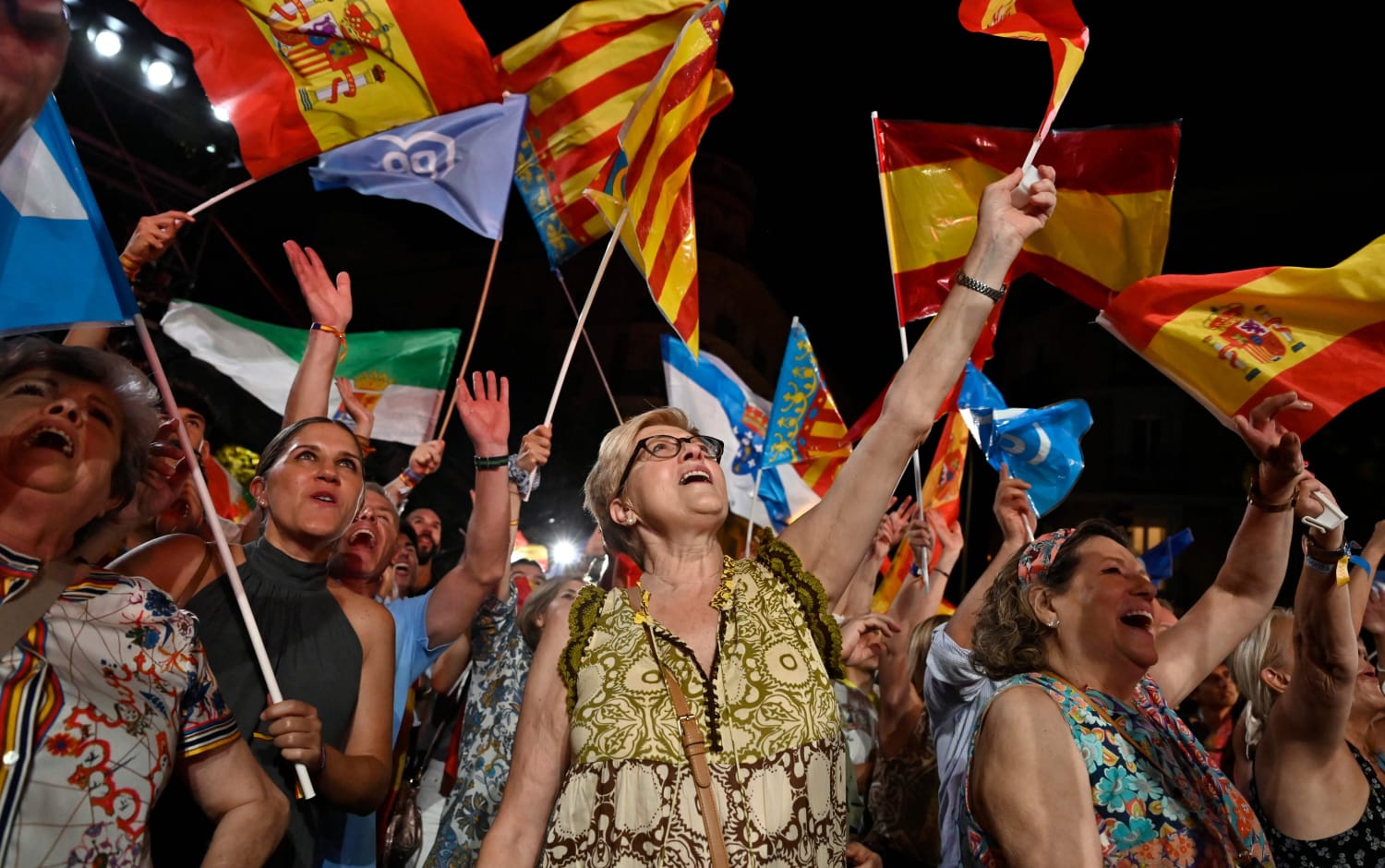

MADRID — Spain appears headed for political gridlock after Sunday’s inconclusive national elections left parties on both the right and left without a clear path toward forging a new government.
The conservative Popular Party won the elections, but it fell short of its hopes of scoring a much bigger victory and forcing the removal of Socialist Prime Minister Pedro Sánchez. Instead, the party led by candidate Alberto Núñez Feijóo performed below expectations of most of the campaign polls.
Even though Sánchez’s Socialists finished in second place, they and their allied parties celebrated the outcome like a victory since their combined forces gained slightly more seats than the PP and the far-right. The bloc that could likely support Sánchez totaled 172 seats; the right bloc behind Feijóo, 170.
“It was a Pyrrhic victory for the Popular Party, which is unable to form a government,” said political analyst Verónica Fumanal, adding the conservatives will now have to reach out to the far-right, and even then it won’t be enough. “I see a deadlock scenario in the Parliament.”
The closer-than-expected election was likely to produce weeks of political jockeying and uncertainty over the country’s future leadership. The next prime minister would be voted on only after lawmakers are installed in the new Congress of Deputies.
But the chances of Sánchez of picking up the support of 176 lawmakers — the absolute majority in the Madrid-based Parliament — needed to form a government are not great either. The divided results has made the hardline Catalan separatist party Junts (Together) Sánchez’s potential kingmaker. If Junts asks for a referendum on independence for northeast Catalonia, that wouldmost likely be far too costly a price for Sánchez to play.
“We won’t make Pedro Sánchez PM in exchange for nothing,” Míriam Nogueras of Junts said after the results left her party holding the keys to power.
With 98% of votes counted, PP is on course for 136 seats. Even with the 33 seats that the far-right Vox is poised to get and the one seat set for a minor party that aligns itself with the PP would still leave far from its goal of a major victory.
The Socialists are set to take 122 seats, two more than they had. But Sánchez can probably call on the 31 seats of its junior coalition partner Sumar (Joining Forces) and several smaller forces to at least total more than the sum of the right-wing parties.
The election took place at the height of summer, with millions of voters on vacation and away from their regular polling places. However, postal voting requests soared.
Coming on the tail of a month of heat waves, temperatures were expected to average above 95 degrees Fahrenheit, or as much as 18 degrees Fahrenheit above normal in many parts of the country. Authorities distributed fans to many of the stations.

 Latest Breaking News Online News Portal
Latest Breaking News Online News Portal




